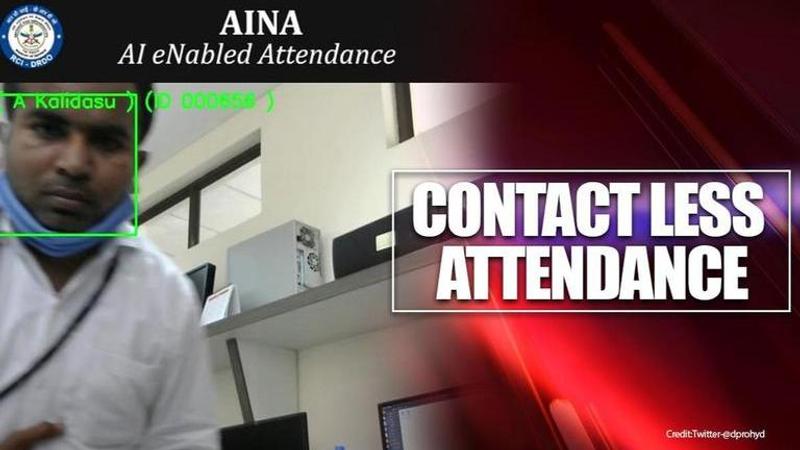Published 09:19 IST, May 24th 2020
DRDO develops 'AINA' AI-based contact-less attendance system requiring minimal upgrade
The system is scalable since time for identification and verification for each person remains constant even as the number of registered personnel increases

The Research Centre Imarat (RCI), DRDO, here has developed an AI-based Attendance Application (AINA) that allows non-contact based personnel verification, using facial features of the person, in the wake of COVID-19 pandemic making it unsafe to use contact-based biometric verification for attendance marking systems.
Contactless attendance
"AINA can be deployed with minimal up-gradation to the legacy attendance infrastructure with RFID readers. AINA can be installed on a normal desktop computer with a GPU based display adapter," a Defence release read. RFID is Radio Frequency Identification.
The system is fully scalable since the time for identification and verification for each person remains constant even as the number of registered personnel increases. It is fully secure as it works as a standalone system and does not require any connection to the internet, it said.
"AINA has a light-weight installation process. AINA comes with a very intuitive and user-friendly GUI with audio prompts which can be optionally disabled," the release said.
Earlier, a DRDO lab in Hyderabad had developed a Contactless Sanitisation Cabinet called Defence Research Ultraviolet Sanitizer (DRUVS) which has been designed to sanitize mobile phones, tablets, laptops, currency notes, challans or other electronic gadgets which could be the carriers of the virus.
This Contactless Sanitisation Cabinet has proximity sensors that let the machine sense if somebody has come close to the machine and wants to sanitise their belongings. The drawer opening and closing mechanism lets the drawer function automatically without requiring to pull the drawer manually.
It provides 360-degree exposure of UVC to objects placed inside the cabinet. Once sanitization is done, the system goes in sleep mode, DRDO informed.
On May 4, the Central government announced that the DRDO had developed an Ultra Violet (UV) Disinfection Tower for rapid and chemical-free disinfection of high infection-prone areas. The equipment named UV Blaster is a UV based area sanitizer designed and developed by Laser Science & Technology Centre (LASTEC), the Delhi based premier laboratory of DRDO.
The UV Blaster is useful for high tech surfaces like electronic equipment, computers and other gadgets in laboratories and offices that are not suitable for disinfection with chemical methods. The product is also effective for areas with large flow of people such as airports, shopping malls, metros, etc.
Updated 09:19 IST, May 24th 2020




